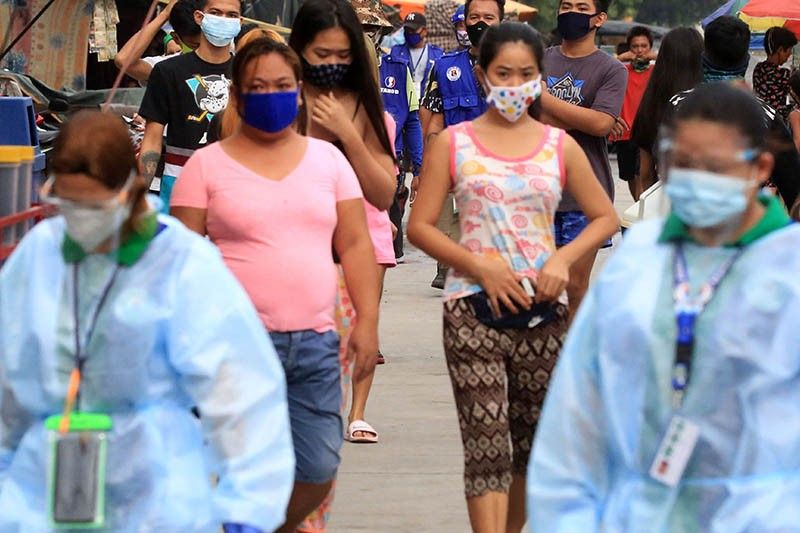Filipinas out of labor force block Philippines' gender equality advance

MANILA, Philippines — The Philippines slid by a notch in a global ranking of gender equality after headways to bring more Filipinas to the labor force got stunted while the pandemic wiped out gains in closing gender gaps around the world.
Out of 156 countries, the Philippines inched down to the 17th spot in this year’s Global Gender Gap Report released by the World Economic Forum on Wednesday. Part of the decline can be explained by having more countries surveyed from just about 144 to 145 in most recent years.
That said, the country has also stopped improving its gender equality levels. The Philippines was found to have closed 78.4% of its overall gender gap, similar with 2019, but down from a peak of 80% in 2018.
This stagnation has, in effect, precipitated a downtrend in rankings after other nations advanced and improved their positions. In the maiden report in 2006, the Philippines was sixth in the world for gender equality.
In its latest report, the WEF, the Geneva-based business organization, found that less than half of Filipino women are in the job market, discouraged to find a job by a still-wide wage and income disparities with men. On this front, the gender gap had only been closed by 65.3%.
“Women should be incentivized to participate more in the broader labour force,” WEF said.
In public office, WEF said only 36.2% of gap has been bridged so far in terms of political empowerment despite having a woman president for over 15 of the past 50 years. “There are still too few seats in the parliament held by women (28%) and even fewer women among ministers (13%),” the report found.
On a positive note, the Philippines virtually closed both educational attainment and health and survival gaps, but also remains among 18 countries that have narrowed at least 79.5% of their economic participation and opportunity gaps between men and women. More Filipinas sit in company boardrooms, WEF found.
“This result is due in part to the fact that the Philippines is one of the few countries that has closed at the same time its gender gap in senior roles, and in professional and technical roles,” WEF explained.
Pandemic hit women disproportionately
Overall, the Nordic nations continued to top the annual rankings, with the disparities between sexes the narrowest in Iceland for 12 years in a row followed by Finland and Norway. Afghanistan ranked at the bottom of the index.
Within the smaller East Asia Pacific, the Philippines ranked second this year, just after New Zealand which occupied the fourth rung globally.
According to WEF, which gathers the world’s elites in Davos every year, the pandemic has disproportionately hurt women who are more likely to get laid off than their male counterparts from work. All while women are left with the heavier responsibility of childcare at home after schools were shut to prevent the pandemic from spreading.
The health crisis has exacerbated the gender gap problem, which is now not expected to get closed for another 135.6 years. “Another generation of women will have to wait for gender parity,” the WEF said.
- Latest
- Trending






























